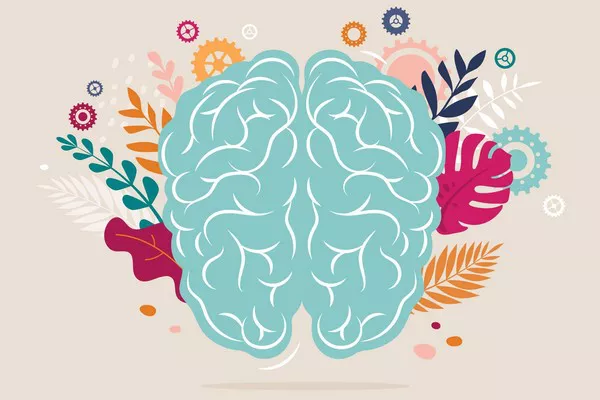Bipolar disorder is a mental health condition characterized by extreme mood swings, ranging from manic highs to depressive lows. While it affects millions of individuals worldwide, the term “high functioning bipolar” is gaining recognition as a subset within the spectrum of bipolar disorders. This article explores the intricacies of high functioning bipolar, shedding light on its definition, symptoms, challenges, and the importance of early detection and tailored treatment strategies.
Defining High Functioning Bipolar Disorder:
High functioning bipolar disorder refers to individuals who manage to maintain a relatively stable and productive life despite grappling with the challenges posed by bipolar symptoms. Unlike traditional stereotypes associated with bipolar disorder, high functioning bipolar individuals often hold jobs, sustain relationships, and lead seemingly “normal” lives. However, beneath this façade of functionality, they grapple with the internal turmoil of mood fluctuations.
Symptoms and Diagnostic Criteria:
To understand high functioning bipolar disorder, it is crucial to delve into the symptoms that differentiate it from other forms of bipolar disorder. The diagnostic criteria for bipolar disorder include distinct episodes of mania or hypomania, often alternating with periods of depression. High functioning bipolar individuals may experience milder forms of mania or hypomania, allowing them to maintain functionality in daily life.
Manic or hypomanic symptoms may manifest as increased energy, heightened creativity, impulsivity, and reduced need for sleep. On the other hand, depressive symptoms can include feelings of sadness, lethargy, changes in appetite, and difficulty concentrating. High functioning bipolar individuals may navigate these episodes more discreetly, making it challenging for others to detect the underlying struggle.
Challenges of High Functioning Bipolar Disorder:
While high functioning bipolar individuals may outwardly appear to manage their lives effectively, they face unique challenges that can impact their well-being over time. One significant challenge is the risk of burnout – the constant effort to conceal internal struggles and maintain a façade of normalcy can take a toll on mental and emotional resources. Additionally, the unpredictability of mood swings can strain relationships and professional commitments.
The pervasive stigma surrounding mental health issues also affects high functioning bipolar individuals. The expectation to conform to societal norms may lead to feelings of isolation and prevent them from seeking help when needed. Recognizing these challenges is vital for developing comprehensive support systems and interventions tailored to the specific needs of high functioning bipolar individuals.
Early Detection and Intervention:
Early detection of high functioning bipolar disorder is crucial for effective management and improved outcomes. Unfortunately, the subtlety of symptoms and the individual’s ability to mask their struggles often delay diagnosis. Regular mental health check-ups, open communication with healthcare providers, and awareness of personal mood patterns can contribute to early detection.
See Also:How Can I Tell If I’m Bipolar? 4 Common Signs
Once diagnosed, a personalized treatment plan is essential. While medication is a common component of bipolar disorder treatment, therapy, lifestyle modifications, and support groups can also play integral roles. Tailoring interventions to address the unique challenges faced by high functioning bipolar individuals enhances the likelihood of successful long-term management.
Balancing Act: Managing High Functioning Bipolar Disorder:
Managing high functioning bipolar disorder requires a delicate balance between preserving functionality and addressing the underlying mental health challenges. The following strategies can aid in achieving this equilibrium:
Medication Management: Collaborating closely with healthcare providers to find the right combination of mood-stabilizing medications is essential. Regular medication reviews and adjustments can help manage symptoms while minimizing side effects.
Therapeutic Approaches: Cognitive-behavioral therapy (CBT), dialectical behavior therapy (DBT), and psychoeducation are valuable therapeutic approaches for high functioning bipolar individuals. These modalities provide tools for coping with mood swings, regulating emotions, and building resilience.
Lifestyle Modifications: Establishing a consistent daily routine, prioritizing sleep, engaging in regular exercise, and adopting stress-reduction techniques contribute to overall stability. These lifestyle modifications play a crucial role in preventing mood swings and promoting well-being.
Support Systems: Building a robust support system is vital for individuals with high functioning bipolar disorder. Friends, family, and colleagues who understand the condition can offer encouragement and assistance during challenging times.
Regular Monitoring: Keeping track of mood patterns and early warning signs allows for proactive intervention. Mood journals, mood tracking apps, and regular check-ins with mental health professionals facilitate ongoing monitoring and adjustment of treatment plans.
Breaking the Stigma: Advocating for Mental Health Awareness:
Addressing the stigma surrounding high functioning bipolar disorder is a collective responsibility. Advocacy efforts, public awareness campaigns, and educational initiatives can contribute to a more inclusive and understanding society. By fostering an environment where individuals feel comfortable discussing their mental health, we can pave the way for early intervention and improved overall well-being.
Conclusion:
High functioning bipolar disorder presents a unique challenge within the spectrum of bipolar disorders. Understanding the nuances of this condition is essential for early detection, intervention, and effective management. By acknowledging the challenges faced by high functioning bipolar individuals and breaking the stigma surrounding mental health, we can foster a more supportive and compassionate society. Through a combination of medication, therapy, lifestyle modifications, and strong support systems, individuals with high functioning bipolar disorder can navigate the complexities of their internal world while leading fulfilling and productive lives.
Related Topics:
Warning Signs and Symptoms of Bipolar Disorder
Bipolar II Disorder: Behaviors and Characteristics
What Does Undiagnosed Bipolar Look Like in Adults?


